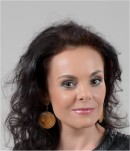

Plenary Lecture
Erasmus Mobilities - That Wonderful Instrument for Lifelong Learning

Dr. Camelia Barbu
Erasmus+ and e-Learning Centre
University of Petrosani
Petrosani, HD, ROMANIA
E-mail: tabacarucamelia@yahoo.com
Abstract: The Erasmus Program (students and academic staff mobilities) is developed in the University of Petrosani, Romania since 2007 and I am the Erasmus Institutional Coordinator from 2012. Since 2007 until present days around 300 students, 63 percent of teachers and 33 percent of administrative staff were the beneficiaries at least one Erasmus mobility. The main objective of the Erasmus Program is to increase chances of young’s employability through gaining of supplementary specific competences, even languages competences. But, it is not only for young people, it’s for all of us. Erasmus means study, training, mixture of ideas and cultures, new people and places, adventure, fun, in other words an entire universe that cannot wait be discovered! Personally, I have been there in all the stages: student, academic staff and, now, Erasmus Institutional Coordinator. Even from this point of view I can say: YES, this is a great chance to be a better man/woman, this is that chance which cannot be missed! Erasmus enriches you and you can become a man/woman that can be an inspiration and motivation for others to a new better world! I just want to show you how the Erasmus mobilities can influence the life of our students and academic staff, beyond numbers and charts. I want to show you some Erasmus success stories and their characters.
Brief Biography of the Speakers: Camelia Barbu: received a BSc in System Control and Applied Informatics Engineering in 2004, an MSc in Automatic Control Methods for Industrial Processes in 2006 and gained a PhD in System Control in 2009. She joined in 2004 the University of Petrosani. In 2011 became Lecturer of System Control Engineering. She is the Director of Erasmus+ and e-Learning Centre of the University of Petrosani. Her general research interests are in applied informatics, system control engineering, modeling and simulation, computer engineering and educational technology. In her 10 years long didactical and research activity she took part and coordinated about 15 national and international research projects and grants, published three books and about 70 papers, from which 13 in WSEAS conferences.